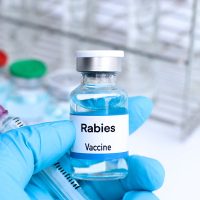Do South Carolina Premises Liability Laws Protect You In The Event Of Rabies Exposure?

Given the cost of healthcare these days, it only makes sense to delay treatment until your symptoms are so bad that they are interfering with your ability to work. If you can take some ibuprofen and get through your workday in spite of your toothache, then certainly your root canal can wait until after your next paycheck. Likewise, people often avoid going to the doctor because they are afraid of getting a diagnosis that will affect them for the rest of their lives, such as diabetes, cancer, or HIV. Of all the health worries that keep us awake late at night when the house is quiet, rabies does not rank highly on the list, because rabies infections in humans are rare in the United States. If you do not get treatment promptly after exposure to the rabies virus, though, the infection is almost always fatal, and by the time symptoms appear, it is too late. Only 14 people who became infected with rabies have ever recovered from the disease. A Columbia premises liability lawyer can help you cover the cost of medical bills if you were exposed to rabies through an animal bite on private property.
Rabies Transmission and Post-Exposure Prophylaxis (PEP)
The lyssavirus, which causes rabies, can only be transmitted when the saliva of an infected animal comes into contact with the blood of mucous membranes of a healthy person or animal. The most common route of transmission is through animal bites, but transmission can also occur if an animal scratches you and breaks the skin. Rabies transmission is entirely preventable, though, if the exposed human or animal gets the first of a series of rabies vaccines promptly after the exposure. This is called post-exposure prophylaxis (PEP), and it is several shots over several weeks, costing about $3,000 for a human and slightly less for a domestic animal.
Today, most rabies infections in South Carolina are in foxes, skunks, bats, and raccoons. South Carolina requires pet owners to vaccinate domestic dogs, cats, and ferrets. It is also possible to vaccinate farm animals, such as cows, sheep, and horses. Today, only one or two people die from rabies in the United States each year. In almost every case, the victims did not know that an infected animal’s saliva had come into contact with their broken skin, and therefore, they did not get PEP.
Who Is Responsible for the Cost of Rabies Vaccines?
PEP for rabies exposure is a costly, but life-saving, medical expense. Whether you can include it in a premises liability claim depends on where the attack took place. If you got bitten by a rabid raccoon that the homeowner should have removed from under the deck, premises liability laws apply. If the animal bite occurred on private property where you were hiking free of charge, the Recreational Land Use Statute protects the landowner.
Let Us Help You Today
The medical malpractice lawyers at the Stanley Law Group can help you if you were exposed to rabies through an animal attack on private property. Contact The Stanley Law Group in Columbia, South Carolina or call (803)799-4700 for a free initial consultation.
Source:
scdhec.gov/health/diseases-conditions/insect-or-animal-borne-disease/rabies

